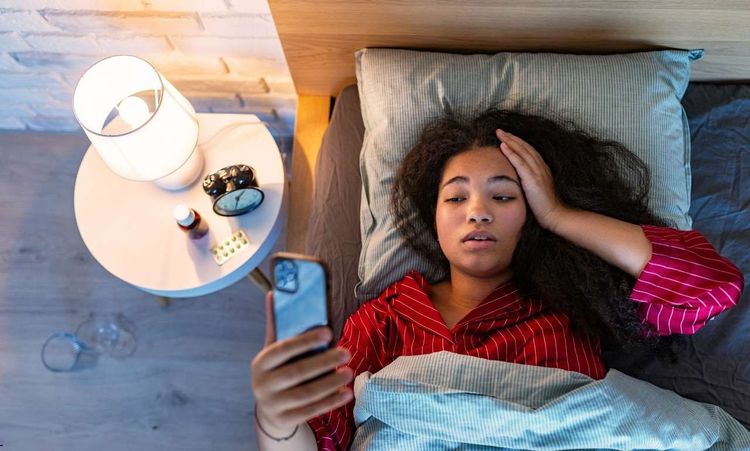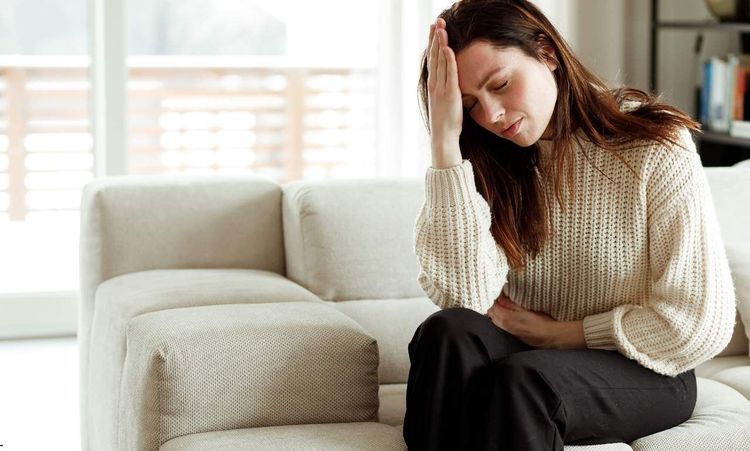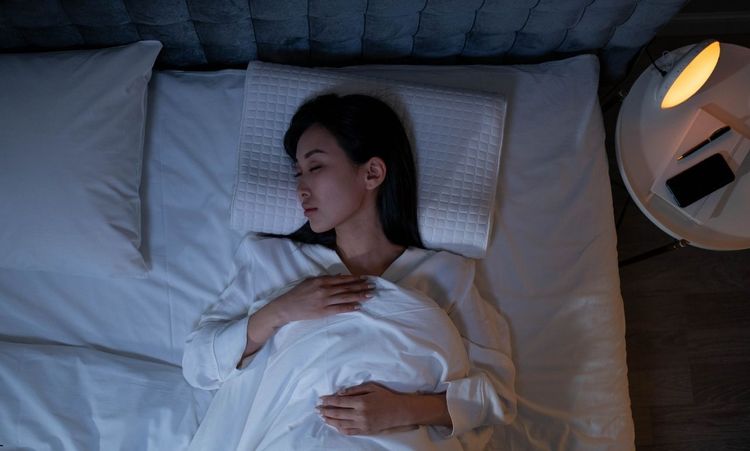Sleep problems affect millions of people worldwide. Technology often gets blamed for keeping us awake at night. However, the right devices can actually help you get better rest. Smart sleep solutions have changed how we approach bedtime routines. These tools can track sleep patterns and create ideal sleeping environments. Modern sleep technology offers practical solutions for common sleep issues. You don't need expensive equipment to start improving your sleep quality tonight.
What is Sleep Tech?
Sleep technology refers to devices and applications designed to improve sleep quality. These tools monitor your sleep cycles throughout the night. They collect data about your sleeping patterns and habits. Some devices create optimal sleeping conditions in your bedroom. Others wake you up at the right time in your sleep cycle. Sleep tech has grown rapidly in recent years. Scientists better understand how sleep affects our health now. This knowledge has led to more effective sleep devices. Today's sleep technology is more affordable than ever before. Most people can find sleep tech solutions within their budget.
6 Best Types of Sleep Devices
Modern sleep technology offers various options for different needs. Each type serves a specific purpose in improving sleep quality. Here are the six most effective categories of sleep devices.
Sleep Apps
Mobile apps represent the most accessible form of sleep technology. These applications help track your sleep without additional hardware. Many phones already have built-in sleep tracking features. You simply place your device on your bedside table overnight. Sleep apps analyze your movement patterns during the night. They use your phone's sensors to detect when you're sleeping deeply. Some apps also monitor ambient noise levels in your room. Popular sleep apps include Sleep Cycle and Pillow for iPhone users. Android users have access to Sleep as Android and similar applications. These apps create detailed reports about your sleep quality. They show you how long you spend in different sleep stages. Many apps also offer smart alarm features that wake you gently. White noise apps deserve special mention in this category. They provide consistent background sounds that mask disruptive noises. Ocean waves, rain sounds, and gentle music help many people fall asleep faster. You can customize these sounds to match your preferences perfectly.
Wearable Sleep Trackers
Fitness trackers have become sophisticated sleep monitoring devices. These wearables collect more accurate data than smartphone apps alone. They measure your heart rate, movement, and sometimes skin temperature throughout the night. Popular options include Fitbit devices, Apple Watch, and Galaxy Watch models. Wearable trackers stay on your wrist while you sleep. They don't require you to remember to start tracking each night. The devices automatically detect when you fall asleep and wake up. This convenience makes them ideal for consistent sleep monitoring. Advanced wearables can detect different sleep stages with impressive accuracy. They distinguish between light sleep, deep sleep, and REM cycles. Some devices even monitor your breathing patterns during the night. This detailed information helps you understand your sleep quality better. Battery life varies significantly between different wearable devices. Most fitness trackers last several days between charges. Smartwatches typically need daily charging but offer more features. Choose based on your priorities and charging preferences.
Sunrise Alarm Clocks
Traditional alarm clocks jar you awake with harsh sounds. Sunrise alarm clocks use gradually increasing light instead. They simulate natural sunrise conditions in your bedroom. This gentle wake-up method feels more natural than sudden loud noises. These devices start with dim light about 30 minutes before your alarm time. The brightness increases slowly until it reaches full intensity. Many models also include nature sounds or gentle music options. The combination of light and sound creates a pleasant waking experience. Sunrise alarms work particularly well during winter months. Reduced daylight can disrupt your natural circadian rhythms. These devices help maintain consistent wake-up times regardless of outside conditions. They're especially helpful for people who wake up before sunrise. Some sunrise alarm clocks also function as sunset simulators. They gradually dim light in the evening to promote sleepiness. This feature helps signal your body that bedtime is approaching. The dual functionality makes these devices valuable throughout your daily routine.
Smart Sleep Masks
Sleep masks have evolved far beyond simple fabric coverings. Smart sleep masks combine traditional light blocking with advanced technology. They often include built-in speakers for playing soothing sounds. Some models even have gentle vibration features for silent wake-up alarms. These masks typically connect to smartphone apps for customization. You can adjust sound volumes, select different audio tracks, and set wake-up times. The masks block out all light while delivering personalized audio experiences. This combination helps many people fall asleep faster than traditional masks alone. Temperature control is another feature in premium smart masks. Some models include cooling or warming elements for comfort. Others use special fabrics that regulate temperature naturally. These features help maintain optimal sleeping conditions throughout the night. Bluetooth connectivity allows smart masks to integrate with other devices. They can work alongside your sleep tracking apps and wearables. This integration provides more comprehensive sleep data and control options. Battery life typically lasts several nights between charges.
Sleep Disorder Aids
Technology has created specialized devices for specific sleep disorders. CPAP machines help people with obstructive sleep apnea breathe properly at night. These devices maintain consistent air pressure to keep airways open. Modern CPAP machines are quieter and more comfortable than older models. Anti-snoring devices use various technologies to reduce nighttime noise. Some monitor snoring patterns and provide gentle vibrations as reminders. Others adjust sleeping positions automatically to reduce snoring episodes. These solutions help both snorers and their sleeping partners. Sleep position monitors help people who need to sleep in specific positions. They alert you when you move into problematic sleeping positions. This technology is particularly helpful for people with sleep apnea. It can also benefit those recovering from certain medical procedures. Smart mattresses represent the most advanced sleep disorder aids available. They adjust firmness, temperature, and position automatically throughout the night. Some models can detect sleep disturbances and make real-time adjustments. These mattresses integrate with other smart home devices for comprehensive sleep management.
White Noise Machines
Dedicated white noise machines offer superior sound quality compared to apps. These devices create consistent background noise that masks disruptive sounds. They're particularly effective in noisy environments like city apartments. Many models offer multiple sound options beyond traditional white noise. Brown noise and pink noise are popular alternatives to white noise. Each type of noise has different frequency characteristics. Some people find certain types more relaxing than others. Quality white noise machines let you experiment with different options easily. Portable white noise machines are perfect for travel situations. They help maintain consistent sleep conditions away from home. Hotel rooms often have unpredictable noise levels throughout the night. A familiar white noise sound can help you sleep better anywhere. Fan-based white noise machines create natural air circulation along with sound. This dual function can be especially helpful in warm climates. The gentle air movement helps regulate body temperature during sleep. Many people prefer this natural approach to purely electronic noise generation.
Benefits of Sleep Technology
Sleep technology offers measurable improvements in sleep quality for most users. Regular sleep tracking helps identify patterns and problems in your rest. You can see how lifestyle changes affect your sleep over time. This data-driven approach makes sleep improvement more systematic and effective. Consistency is one of the biggest benefits of sleep technology. These devices help establish regular bedtime and wake-up routines. Consistent sleep schedules improve your natural circadian rhythms significantly. Better sleep timing leads to feeling more rested during the day. Environmental control represents another major advantage of sleep tech. Smart devices can adjust room temperature, lighting, and sound automatically. These optimized conditions help you fall asleep faster and stay asleep longer. You wake up feeling more refreshed when your environment supports quality sleep. Early detection of sleep problems is perhaps the most valuable benefit. Sleep tracking can reveal issues you might not notice otherwise. Irregular sleep patterns, frequent wake-ups, and poor sleep quality become visible in the data. This information helps you address problems before they become chronic issues.
Conclusion
Technology can be a powerful ally in your quest for better sleep. The six types of devices covered here address different aspects of sleep improvement. Start with simple solutions like sleep apps or white noise machines. Gradually add more sophisticated devices as you identify your specific needs. Remember that sleep technology works best when combined with good sleep hygiene practices. Regular bedtime routines, comfortable sleeping environments, and healthy lifestyle choices remain essential. Technology enhances these fundamentals rather than replacing them entirely. The investment in sleep technology typically pays for itself through improved health and productivity. Better sleep leads to better focus, mood, and physical performance during the day. Choose devices that fit your budget and lifestyle for the best long-term results.




